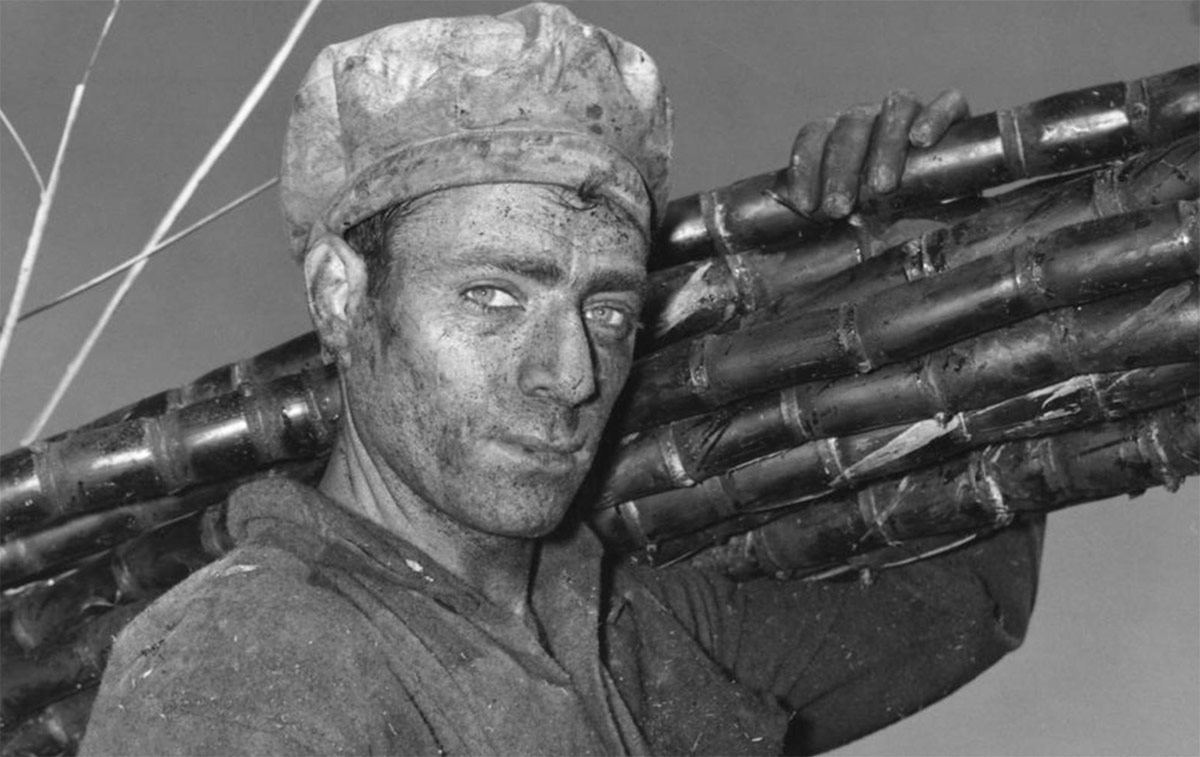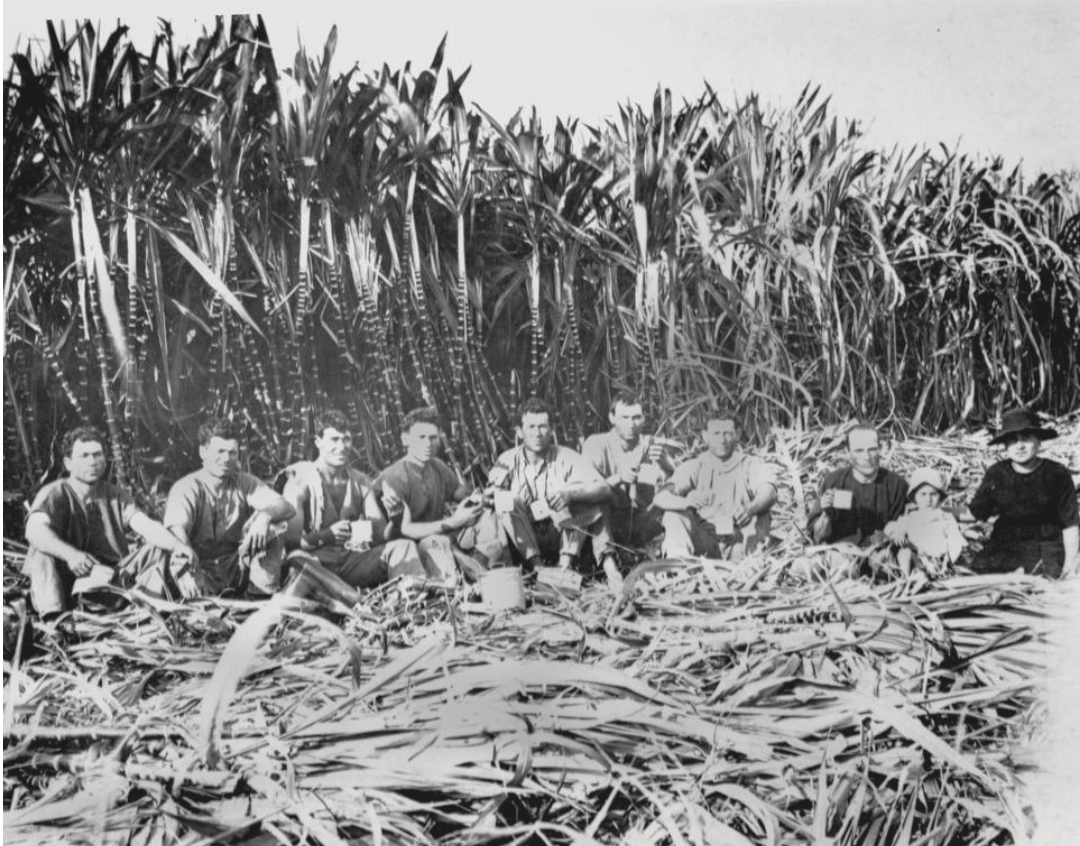
Words by Pam Willis Burden
-----------------
How hard times helped Italian families find fresh beginnings in the Douglas Shire
Farmers in Europe were in trouble. The grapes for the wine industry had developed a serious disease. The First World War had impoverished families and the Second World War was looming. People were seeking a better life and began looking for new beginnings in faraway places.
Australia beckoned, especially Far North Queensland. It was safe, sunny and, if men worked hard, they could improve living conditions for their families.
Many had no idea where they were heading when boarding the ships bound for southern shores. It was a huge country. Should they settle in the west or far north on the opposite coast? One brother would arrive and make his way, and others followed to join him.
Victor Bertoncini landed in Fremantle from Tuscany in 1957 with only one word of English. Banana. He was fed bananas by friendly locals who pointed him towards the banana-growing area in Queensland. Bananas sustained him during his long trek across the country, and he finally arrived in Mossman to join his brother in the sugar cane fields. For a tender 17 year old, it was brutal work and his hands often bled from handling the rough sticks of cane that he’d cut with a sharp knife. But through his efforts in the cane fields, he eventually saved enough to buy a truck to haul cane. He later bought the local Mossman Taxi Service and married his girlfriend, young Gina.
Gina’s father Joe Contarino had arrived in the region in 1927 and was married by proxy to a young bride in Italy who spoke no English. Joe’s new wife Nelli arrived in Queensland in 1932. Just after Gina was born, Joe was interned for 18 months in Melbourne during the Second World War. It was very difficult times for the young immigrant mother in a strange land far from family back in Italy.
After the war, Joe returned to Queensland and set up a grocery shop in Mossman. He would drive his truck to the Atherton Tablelands to buy tomatoes in bulk and fresh fruit and vegetables directly from the growers. As more Italians arrived, he translated for the Italian cane cutters and they often boarded in his house where his wife cooked familiar meals and prepared them food to take to work, called cribs.
Joe’s shop became the most popular grocery store in Mossman especially after he started flying to Sydney to buy salamis, cheese and imported Italian products not available from Cairns. The shop is now Temptations Café, run by his grand-daughter Pia McKeown.
The late Rose Gusmeroli’s father Sebastiano Sciacca emigrated from Catania in Sicily in 1920 to join his brother. They cut cane for a few years until they could afford to purchase land together to grow sugar cane. Many families came from Catania at that time and they would socialise and share their language. Even today, their descendants still gather at Temptations Café on a Saturday morning to enjoy coffee and a chat, although the Sicilian dialect they learned from their families is becoming outdated. When younger family members return to visit Italian relatives, they often find them difficult to understand.
When she was growing up, Rose and her family lived together in one house on the small farm in Cassowary until her Dad bought the farm in Miallo. Both parents cut the cane because they had no money to hire workers, and they used horses because they couldn’t afford a tractor. The house had no electricity or water, so her mother Leonarda would wash the clothes in the river. Rose did her homework by kerosene lamp.
As soon as she left school at Grade 7, Rose worked on the farm from five in the morning till seven at night. She’d dress like a boy in trousers and a long-sleeved shirt and hat. But there were no gloves or sunscreen and only sandshoes without socks. Ticks were everywhere.
A bomb from a lost Japanese aircraft dropped on a galvanized iron cottage near their house on 31 July, 1942 during the Second World War. The Scarcella, Tati and Zullo families were together on that farm, but when 21⁄2 year old *Carmella Zullo was seriously injured by shrapnel from the bomb, all the families moved. Rose’s father bought what remained of the cottage and moved it onto his farm.
Mrs Scarcella was a chef in Italy and she would gather all the Italian women to help with catering when a daughter got married. Rose remembers they would select chickens then strangle, pluck and clean them before preparing a massive feast including a variety of puddings. Most weddings had so many guests that the receptions were held in the local Mossman Shire Hall.
Angela Zammataro’s late father Alfio was also from Catania. His sister was married by proxy to an Italian man, Mr Tati, who lived in Mossman. Often men who had immigrated were married by proxy, and a relative in Italy would walk the bride down the aisle in a local wedding before the brave young woman left for Australia to join a husband she’d never met. Alfio accompanied his sister, the new Mrs Tati, on her voyage to Mossman, leaving behind his own wife and three young children. He didn’t come back home to them for two years but later returned to Australia with his own family.

